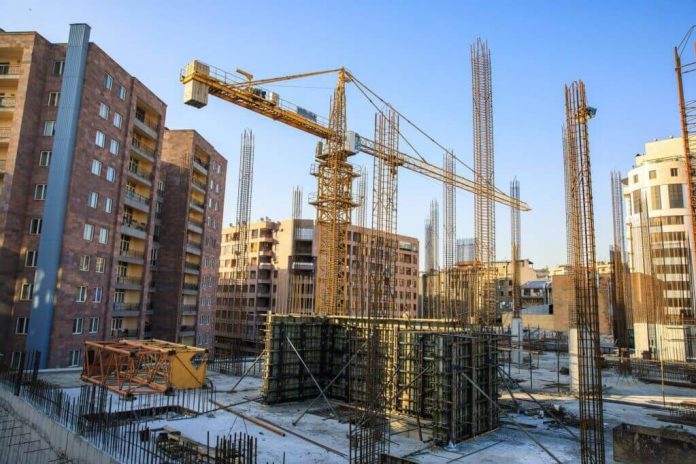This article is written by Shalini Singh, pursuing Certificate Course in Real Estate Laws from LawSikho. The article has been edited by Prashant Baviskar (Associate, LawSikho), Ruchika Mohapatra (Associate, LawSikho) and Indrasish Majumder(Intern at LawSikho).
This article has been published by Abanti Bose.
Table of Contents
Introduction
The Real Estate (Regulation and Development) Act (“The Act”) has definitely been a boon for the customers, but the onus still lies on them to do diligent research about the project before investing in it. As a prospective buyer, there are innumerable things one must keep in mind and do a thorough check and research in order to make a smart choice. Other than that, one must also be aware of the laws in favour of the builder and also the one in favour of the prospective buyer so that they understand all their rights and duties.
RERA acts as a nodal agency for coordination, development and management of the Real Estate sector and also provides necessary advice/service to the Government to ensure that there is growth and promotion in the real estate sector. Proper due diligence will help the buyer understand all the necessary information and precaution he/she needs to take in order to purchase the property he wishes to.
This article seeks to unravel all the necessary details required for the construction project, due diligence for allottees and prospective home buyers via giving an overview of the necessary provisions under the law.
Necessary details required for construction project due diligence
The following are the necessary details required for the construction project due diligence for allottees and prospective home buyers:
- The buyer must thoroughly go through the copy of the agreement. It is important to verify all the details provided for the original document of the property. It is important to note that the title of the seller should not only be clear but also marketable. The buyer should thoroughly examine the title report of the property (if available).
- The buyer must cross-check whether the builder has obtained necessary non-agricultural permissions from the collector for the desired land.
- The buyer must also check for a copy of clearance under the Urban Land Ceiling Act.
- The buyer must check for the building plans that are sanctioned by the competent authority.
- The buyer should also check for the Clearance certificate (CC) granted by Corporation/Nagar Palika.
- The buyer should also check for all the building bye-laws and also verify any pertaining issues with the setbacks etc.
- He must confirm with the seller the transfer fees, stamp duty and registration charges to be paid on the purchase of the property as well as outgoings to be paid for the property.
- The sale agreement must be scrutinized in detail for municipal corporation approved plan of the flat, carpet area with an area of the balconies shown separately, price of the property including the proportionate price of common areas and facilities shown separately and intervals at which instalments may be paid.
- The buyer should verify that proper stamp duty has been paid on the property.
- It is the onus of the buyer to physically check the place before signing the purchase agreement.
- It is important to keep in mind that a buyer can only claim damages if what was shown to the buyer is different or of low quality from what they were sold.
- It is advisable to employ a consultant.
- Please note that any dispute at a later stage can be taken to the real estate tribunal, but it will be a fair play out there. If the builder can prove that you have delayed payments or have not fulfilled his side of the commitment, the tribunal can punish the buyer as well.
- Please note that it is of utmost importance to do a background check on the builder and the project details to see if all necessary permission is in place and if paperwork is in order.
Important things to know about real estate law as a house buyer
As a house buyer, these are a few things to keep in mind about real estate law::
- All projects should be mandatorily registered with the Real Estate Regulatory Authority in each State.
- Real estate agents who intend to sell any plot, apartment or building should also register themselves with this authority.
- It makes mandatory the disclosure of all information for registered projects like details of promoters, layout plan, land status, schedule of execution and status of various approvals.
- It seeks to enforce the contract between the developer and buyer and act as a fast track mechanism to settle disputes.
- For the construction of a project, 70% of the buyers’ investment has to be deposited into a separate account.
- The Act prohibits a developer from changing the plan in a project unless 2/3rd of the allottees have agreed to such a change.
Essential provisions to be kept in mind by the buyer
- Section 3– Prior registration of the real estate with RERA.
- Section 59 – Punishment for Non-registration or contravention of section 3.
- Section 4 – Application for registration of real estate projects.
- Section 60 – Penalty for contravention of Section 4.
- Section 12 – Obligations of promoter regarding the veracity of the advertisement or prospectus.
- Section 13– There should be no advance taken by the promoter without first entering into the agreement for sale.
- Section 14– Adherence to sanctioned plans and project specifications by the promoter.
- Section 15 – Obligations of a promoter in case of transfer of a real estate project to a third party.
- Section 16 – Obligations of promoter regarding.
- Section 18 – Return of amount and compensation.
Remedies in case of violation of rights
Any person can file a complaint with the RERA if there is a violation of the provisions of the respective act or the rules.
A buyer who is the victim of any unfair practices of the builder can approach the following ways for their grievance:
- He can file a civil suit.
- He can file a complaint before the consumer forum.
- He can approach regulatory forums.
- He can also file a case before the Competition Commission of India.
- He can file a Criminal Case in the appropriate Court of law.
Significant case laws
There are some important issues from the perspective of the buyer that needs to be brought to light. Below mentioned are some issues such as delayed possession, jurisdictional issues and others discussed through case laws:
Delay in possession involves refund of payment and interest
In Singh vs MVL Ltd, the aggrieved party filed the complaint against the builder for delayed possession of the property. RERA authority held that it has jurisdiction even for agreements executed before RERA was enacted if the cause of action has survived after the Act came into force. Further, it held that possession without a certificate is against the law. The authority granted the aggrieved party a full refund with interest and therefore the cost of the complaint.
Constitutional validity of the RERA Act was challenged in Bombay HC
Builders filed a case against the Union of India challenging the indigenous validity of varied provisions of the RERA Act, the Maharashtra RERA rules like provisions addressing delay in possession, arbitrary interests on builders, etc. While upholding certain sections of the Act and rules, the Bombay high court struck down one of the qualifications for appointment of a Judicial Member specified in Section 46 (1) (b) of the Act.
In Geetanjali Aman Constructions vs Hrishikesh Ramesh Paranjpe, the development company approached the Maharashtra Tribunal against the orders delivered by RERA when two homebuyers filed complaints that the developer hadn’t registered the ongoing project with RERA. The state’s RERA ruled that the developer should pay a penalty of three of the project cost as per RERA provisions. Later, the developer sought a review of the order as there have been errors within the area of the project and thus the number of apartments. The RERA assessed a redundant penalty until the project is registered because the quantum of apartments exceeded eight. The Tribunal further quashed both the orders and stated that if either of the two parameters is met, one need not register the housing project with RERA
Conclusion
It is a renowned saying that whatever won’t change with the evolving time, will at last result in disappointment; this remains true for the law, as well. Society is not static, it is progressive. It needs to change with time to survive. RERA has been created to act as the central authority to regulate all real estate activities and promote transparency, efficiency and effectiveness in the real estate market. Its constitution therefore should also involve the necessary transparency. Especially with the ambit of powers extended to RERA, it has become easier for the buyers to exercise abundant diligence while buying the property. With the Coronavirus pandemic, the RERA too has evolved over a short time span. For example, virtual hearings are now common and have continued in some states even after the lockdown was lifted.
References
- https://www.indiacode.nic.in/bitstream/123456789/2158/1/A2016_16.pdf
- https://www.aaptaxlaw.com/real-estate-act-2016/section-3-real-estate-act-2016-prior-registration-of-real-estate-project-with-real-estate-regulatory-authority-section-3-the-real-estate-regulation-and-development-act-2016.html
- https://maharera.mahaonline.gov.in/Upload/PDF/SCl0000672%20and%20SCl0000691%20Ms%20Geetanjali%20Aman%20Constructions%20and%20ors%20vs%20Hrishikesh%20Ramesh%20ParanjPe%20and%20ors.pdf
- https://haryanarera.gov.in/assistancecontrol/viewOrderPdf/Mjk2MA
Students of Lawsikho courses regularly produce writing assignments and work on practical exercises as a part of their coursework and develop themselves in real-life practical skills.
LawSikho has created a telegram group for exchanging legal knowledge, referrals, and various opportunities. You can click on this link and join:
https://t.me/joinchat/L9vr7LmS9pJjYTQ9
Follow us on Instagram and subscribe to our YouTube channel for more amazing legal content.
 Serato DJ Crack 2025Serato DJ PRO Crack
Serato DJ Crack 2025Serato DJ PRO Crack











 Allow notifications
Allow notifications


